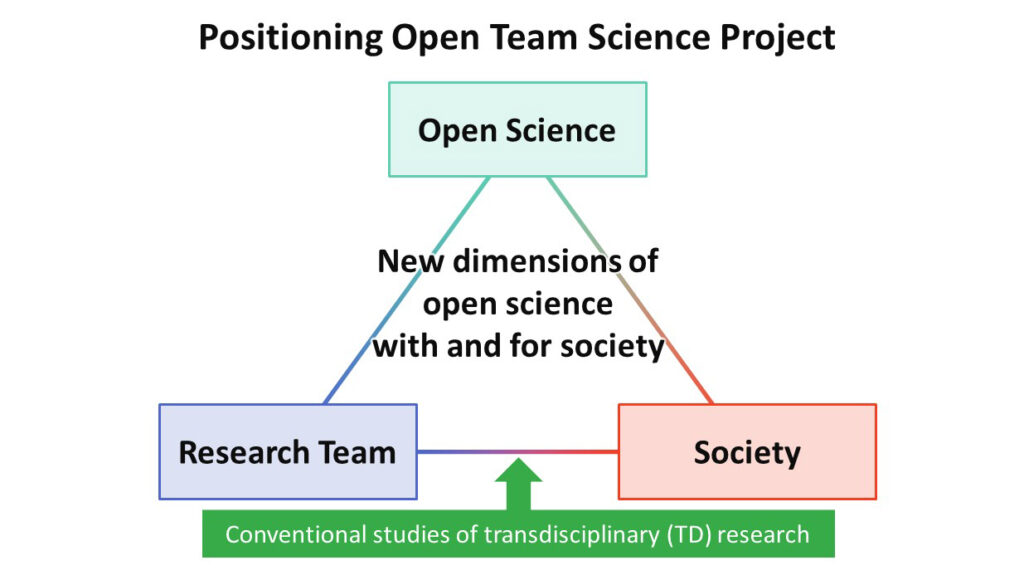Our mission
Social issues caused by environmental deterioration present complex and multidimensional problems for science. To address such wicked problems, solution-oriented research has involved research experts from di¬fferent domains (interdisciplinarity) and also practitioners such as governments, funders, industries, non-profit organizations, and civil members (transdisciplinarity). However, such team science is often disrupted by asymmetric information, knowledge, wisdom, value, socio-economic status, and power among above-mentioned actors. Our Project develops a methodology to reduce (rather than dissolve) such socio-psychological asymmetry for the sake of more efficient transdisciplinary (TD) collaboration.

Our vison
This project is exploring new dimensions of open science with and for society.
Now, the open science policies and movements appeared to open data and knowledge of publicly funded research.
“Open science is regarded as a movement within the open scientific knowledge production system, rather than open scientific knowledge only”.1)
Open team science means the interlinking open science and transdiciplinary with boundary spanning.
Approach method
Structure & Bodies
This Project had conducted as Core Project from April 2018 to March 2021 at Research Institute for Humanity and Nature in Kyoto.
Transdisciplinary
Team-based research projects to address socio-environmental wicked problems, in collaboration with researchers of different domains, in cases of interdisciplinary research, and also with diverse societal actors in cases of transdisciplinary research.

Iterative Circuit of Abduction, and Checkpoints
The Open Team Science Method is iteratively improved through an abduction circuit. Abduction is a logical method to find best-fit hypotheses through assessment of cases. The checkpoint in assessment classified into outcome, process and perception of participants. The Open Team Science Methods self-checklist is relevant to the assessment of process. These points are self-checked by means of conventional method of social surveys, such as participatory observation, semi-structured interview and questionnaire survey.
1) Interlinking open science and community-based participatory research for socio-environmental issues Yasuhisa Kondo, Akihiro Miyata, Ui Ikeuchi, Satoe Nakahara, Ken’ichiro Nakashima, Hideyuki Ōnishi, Takeshi Osawa, Kazuhiko Ota, Kenichi Sato, Ken Ushijima, Bianca Vienni Baptista, Terukazu Kumazawa, Kazuhiro Hayashi, Yasuhiro Murayama, Noboru Okuda, Hisae Nakanishi Current Opinion in Environmental Sustainability 39 54 – 61 2019年8月

